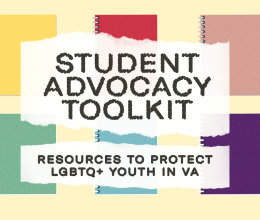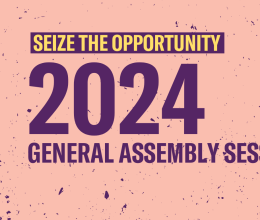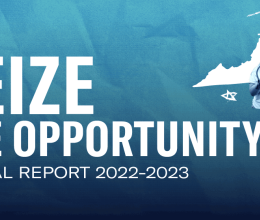The following op-ed was published in the Richmond Times-Dispatch on Feb. 17, 2016.
Proponents of two bills still under consideration in the Virginia General Assembly — Senate Bill 41 (SB 41) and House Bill 773 (HB 773) — say they are necessary to shield religious believers from persecution or prosecution.
In fact, both bills either arm some, and only some, believers with a government sword to force their beliefs on others, or accord an unconstitutional government preference to some believers.
No case has been cited, no facts reported, no evidence adduced that there is any real or imminent threat to religious freedom in Virginia. No legislation is necessary to protect Christian churches and other faith communities or any religious leader from being “forced” to marry people in their faith tradition when doing so would be inconsistent with the tenets of their faith.
The First Amendment and the Virginia Statute for Religious Freedom are strong walls against any such action by government. The Virginia Religious Freedom Restoration Act passed in 2007 provides additional protection against any government action that “substantially burdens” anyone’s exercise of their faith.
Why then is legislation being proposed, and what would be its effect?
SB 41 offers those given the privilege of “solemnizing” a marriage on behalf of the state (a civil act) the authority to discriminate among people for whom they would provide that service based on any “sincerely held religious belief.” The bill would accord this privilege to discriminate not just to faith leaders who seek the authority to solemnize civil marriages, but to every judge and any person who obtains a court order allowing them to solemnize marriages on behalf of the state.
It would not “burden” anyone’s free exercise of religion to require anyone who wants the authority to solemnize marriages on behalf of the state to do so without discrimination. Faith leaders would still be able to choose freely to perform or not to perform the religious rite of marriage without any state involvement, and people married by a faith leader or in a religious tradition that chooses not to marry certain people or couples could go to a judge or other civil authority to get their marriage solemnized for purposes of state recognition.
SB 41 also says any religious organization or any unspecified organization “operated in connection with a religious organization” cannot be required to provide any “services, accommodations, facilities, goods, or privileges for a purpose related to the solemnization of any marriage.” The bill doesn’t say this is related to the performance of the religious “rites” of marriage. It refers to the solemnization of the marriage civilly, which is a state action.
This conflation and confusion of civil and religious marriage is purposeful. It leads to a broad grant of authority to discriminate based on religion in conducting a public function or offering services or goods related to a public function. No burden on the free exercise of anyone’s religion would exist if the right to discriminate was not authorized.
HB 773 seeks to grant a special and even broader privilege to discriminate, and a private cause of action to enforce that right only to people who hold certain religious beliefs regarding same-sex marriage, premarital sex, and the definition of gender. The bill states the protections afforded this select group of believers would be “in addition to the protections provided under the United States Constitution, the Constitution of Virginia, and federal and state law.”
This grant of special rights is clearly an unconstitutional establishment of religion that prefers one set of beliefs over all others.
The Supreme Court of the United States has said “(t)he clearest command of the Establishment Clause is that one religious denomination cannot be officially preferred over another.” The court also has emphasized that “(t)his prohibition is absolute.” Any rule or law that purports to treat certain religious beliefs differently (and more favorably) than others must, at a minimum, be justified by a compelling governmental interest, and be closely designed to further that interest.
The Virginia Constitution also expressly protects the “right to be free from any governmental discrimination upon the basis of religious conviction …”, Art. I Section 11. This also commands strict scrutiny of a statute, like this one, that creates a preferred status for certain beliefs over others.
No compelling interest can be articulated to support passage of legislation creating special rights and legal causes of action only for people who have certain specified beliefs about sex and marriage. Passage of such legislation would constitute an establishment of religion. When government has a religion, we are all less free to believe.
NEW
We won another case at the Supreme Court of Virginia!




